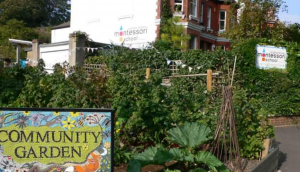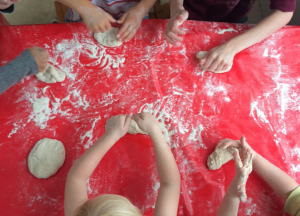A Brighton and Hove school has been rated “inadequate” by the government’s official school standards watchdog, Ofsted.
The Brighton and Hove Montessori School, in Stanford Avenue, Brighton, received Ofsted’s lowest rating in a report published today (Thursday 9 December).
The school, which charges fees of £8,295 to £13,930 a year for day pupils, has two classes known as the Elementary Group and the Children’s House, according to the watchdog.
The report said: “Leaders do not have a good enough knowledge of what is happening in the school, particularly in the Children’s House.
“Basic processes, including those relating to safeguarding, and a range of independent school standards have not been maintained.
“The two classes are organised very differently and are not equally ambitious for pupils.”
The school, which is run by Brighton and Hove Montessori Ltd, has been led by Daisy Cockburn, 65, since it was started in January 1985.
The report praised the Elementary Group, for children aged 6 to 12 years old, but criticised the Children’s House for under-6s, for “a lack of ambition”.
Ofsted said: “Children have been hindered in their learning to read (in the Children’s House). Reading is a strength in the Elementary Group.
“Some pupils arrive from the Children’s House and other schools with weak reading skills. Leaders suspect this is to do with their missing schooling during the covid-19 pandemic.
“All pupils display very positive attitudes to school and the opportunities it gives them. Parents are similarly positive, many commenting on the difference the school has made to their child’s self-esteem and interest in learning.
“However, these stakeholders do not realise that leaders have not followed important processes to ensure the welfare, health and safety of pupils.
“Leadership is muddled and key actions have not been taken.
“The arrangements for safeguarding are not effective. Staff safeguarding knowledge is poor.
“School documentation is contradictory and some staff did not know who the designated safeguarding lead is.
“Leaders have not followed statutory safeguarding guidance. For example, leaders had not conducted risk assessments for parent volunteers or checked that they understood their role in safeguarding pupils.
“Until the inspection, some required recruitment checks for staff were not completed.
“Leaders have not reviewed incidents of restrictive physical intervention so have no understanding of common antecedents or checked on pupils and staff after these events.
“Staff know pupils well and leaders have made appropriate and useful referrals to external services when necessary.”
Ofsted said that the school, which has 30 to 35 pupils and the capacity for 65 children from two to 12, needed to take a number of steps to improve.
The report said: “Leaders’ knowledge of statutory safeguarding requirements is not secure.
“At the start of the inspection, they had not undertaken all the required checks for adults working at the school.
Risk
“They had not considered risk assessments needed to manage volunteers working on the school site. This potentially puts pupils at risk.
“Leaders must ensure that these requirements are considered by all at the school so that they are met consistently.
“Staff did not know who the designated safeguarding lead is. This means that the agreed safeguarding processes could not be followed.
“While this was corrected during the inspection, leaders need to ensure that all staff have secure knowledge and understanding of safeguarding roles, responsibilities and processes.
“Staff knowledge of the recent safeguarding updates is poor. They have not considered the implications of this information for pupils at the school.
“Some staff do not know their duties to protect pupils from radicalisation and extremism. Consequentially, staff do not have the knowledge to look out for potential risks of harm to pupils.
“Leaders need to ensure that all staff are alert to potential risks to pupils and understand how statutory guidance must be applied to the school.
Confusion
“There is no oversight or systematic process to review the use of restrictive physical interventions.
“While these infrequent restrictions are logged and communicated to parents, there is no discussion about triggers or how they might be prevented in the future.
“This puts staff and pupils at risk. This needs to be considered as a matter of urgency.
“There is a sense of confusion regarding leadership at the school. Leaders are in a period of transition and some roles are changing.
“Staff in the Children’s House have not had the leadership they need and they lack ambition for children.
“Assessments to check what children can do already were not done until the inspector asked about them.
“Consequently, some children are not making the progress they should, especially with their reading.
“Leaders need to address this confusion and ensure that the quality of provision is as they intend at all times.”
The school was inspected from Tuesday 19 October to Thursday 21 October by Lucy English and Kathryn Moles.
Their verdict was that the quality of education and the early years provision “requires improvement” and the leadership and management were “inadequate”.
Behaviour and attitudes were “good” – as was personal development – but the school, which was rated “good” at its previous full inspection three years ago, overall “requires improvement”.
The school said: “Although disappointed by our recent Ofsted report, we are using it as a catalyst for improvements and are grateful for the encouragement and help of parents and other professionals.
“This is also an outcome of our report https://parentview.ofsted.gov.uk/parent-view-results/survey/result/125969/12 from which you can see that current parents feel their children are happy and safe at this school and would recommend us to other families.
Concerns
“Regarding concerns raised by the report, we would like to clarify that all our staff have enhanced DBS checks and paediatric first aid as a matter of routine.
“Implementing safeguarding and child protection to ensure child safety and wellbeing has always been a paramount concern for us.
“Additionally ‘Prevent’ training was completed by colleagues who had recently joined us and other improvements have and continue to be made in all areas of our work.
“With regards to the curriculum for reading and writing, the Montessori curriculum is well documented and is being implemented with great enthusiasm.
“Some children have had interruptions in their learning due to covid but are enjoying getting back to a more calm and child-centred environment.
“We urge anyone with any queries to contact us at info@brighton-montessori.org.uk or look at our website www.brighton-montessori.org.uk for upcoming open events.”
To read the full Oftsed report, click here.










